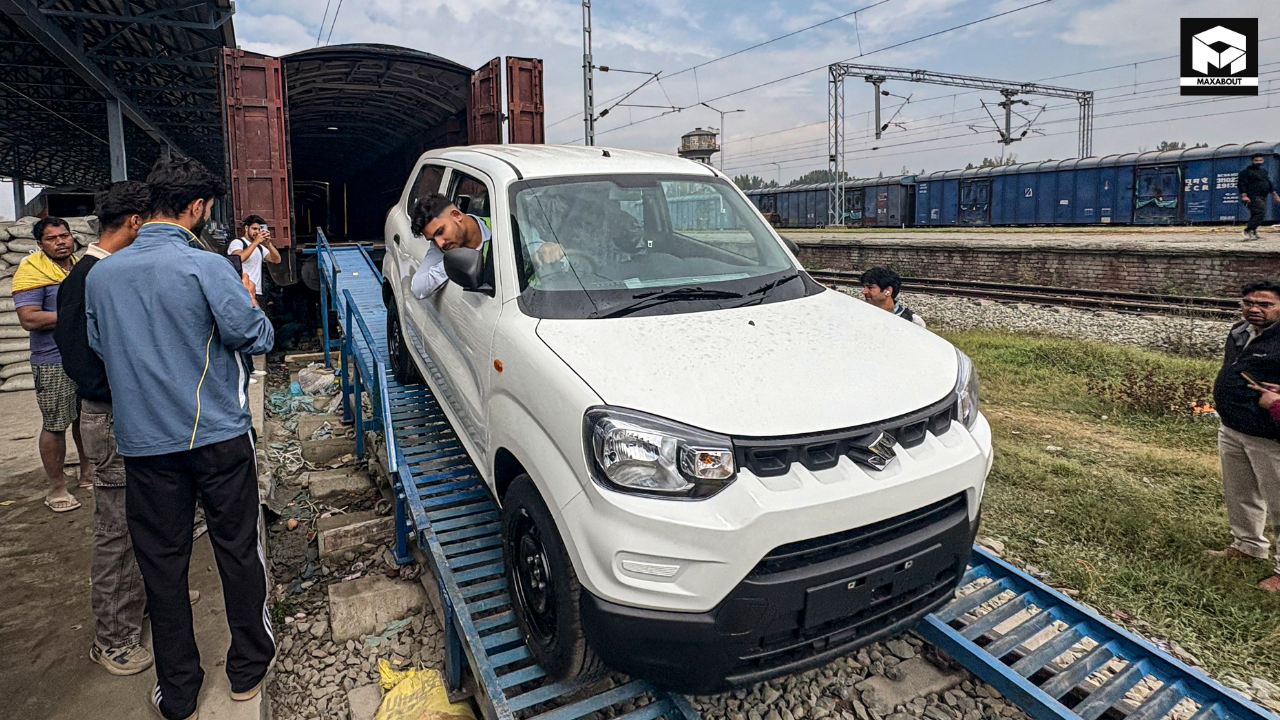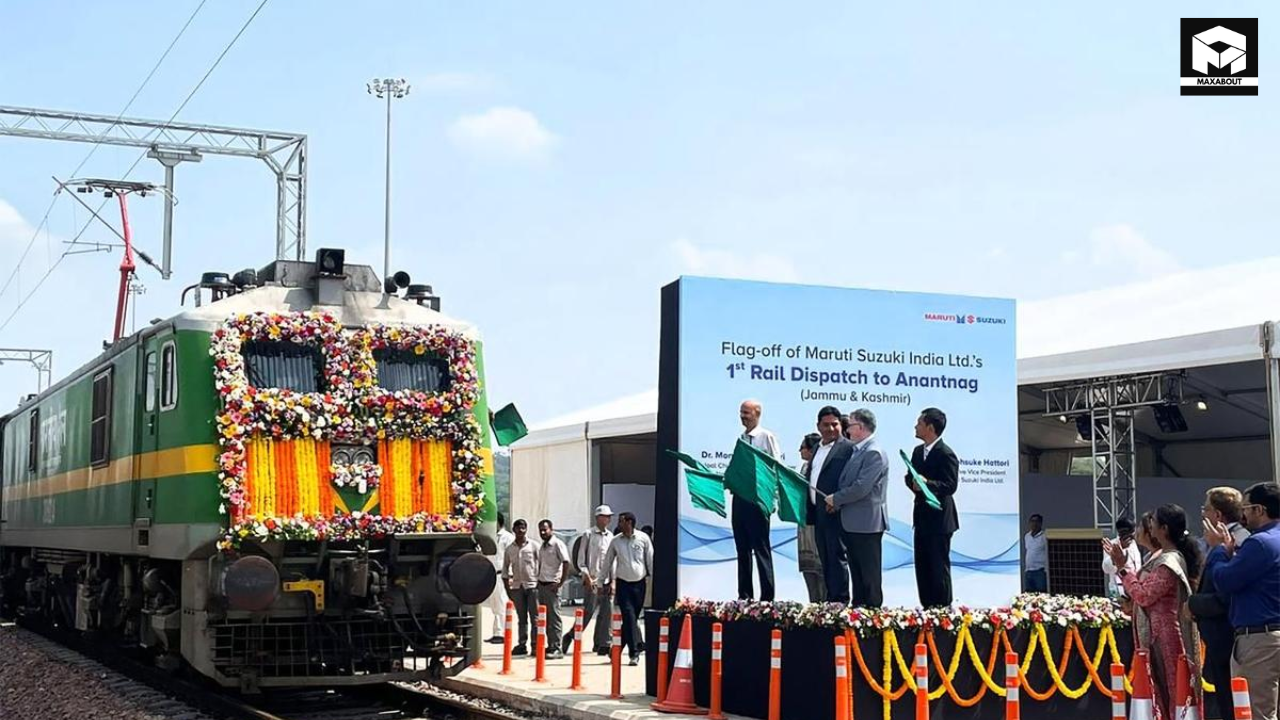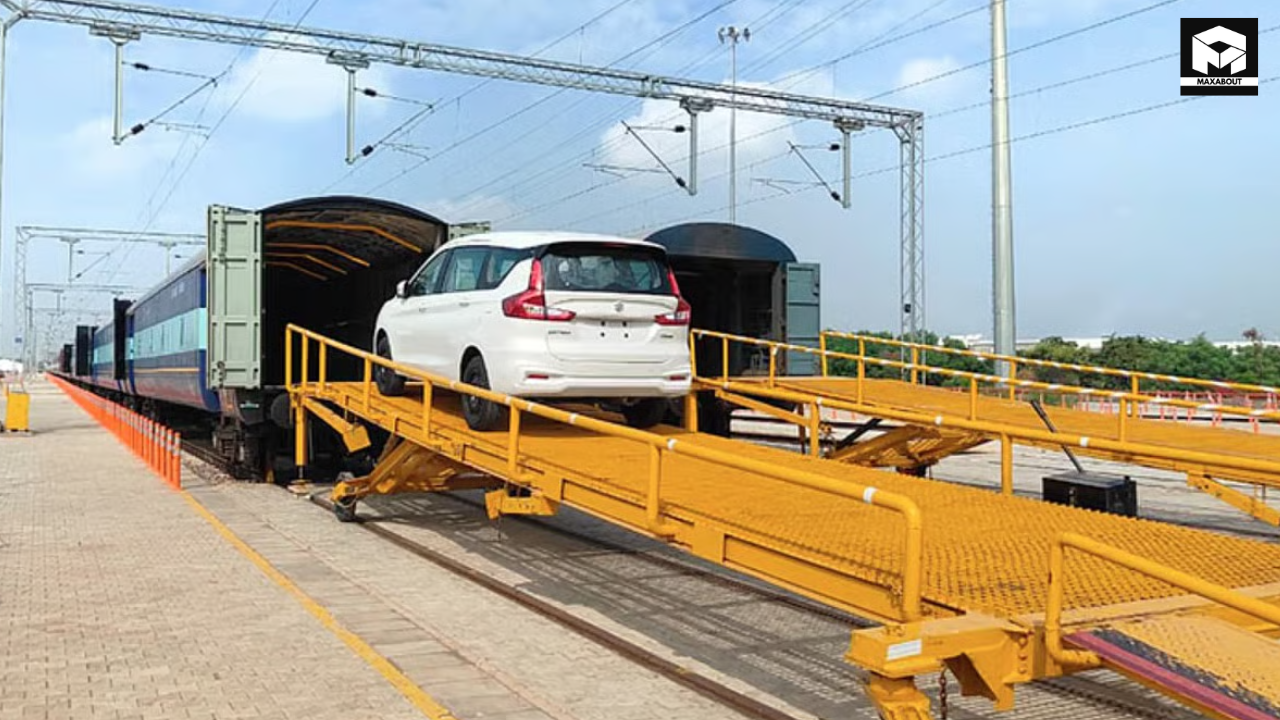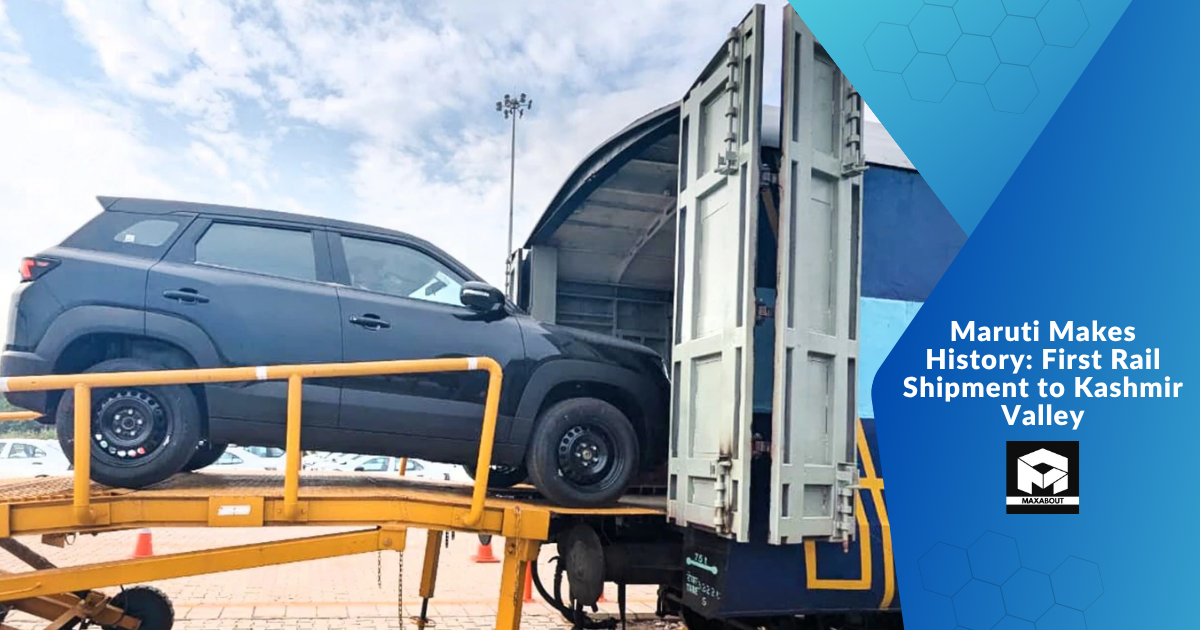Introduction
Maruti Suzuki has achieved a significant milestone by becoming the first automobile manufacturer to dispatch vehicles to the Kashmir Valley through railways. Having spent years analyzing the automotive logistics landscape across India, I've seen many transportation innovations, but this particular development represents a meaningful shift in how vehicles reach one of India's most challenging geographical regions.
The Kashmir Valley, known for its beautiful but difficult terrain, has traditionally been a logistically challenging market to serve. Road transportation to this region has always been costly, time-consuming, and subject to seasonal disruptions. By leveraging rail infrastructure, Maruti Suzuki has demonstrated remarkable foresight in addressing these persistent challenges.
The Breakthrough Rail Transport Initiative

Working with Indian Railways, Maruti Suzuki has established a new transportation corridor that enables the direct shipping of vehicles to the Kashmir Valley. This initiative utilizes specialized railcars designed specifically for automobile transportation.
Technical Implementation
The transportation system employs BCACBM wagons (Bogie Covered Auto-carrier Double Decker Brake van Modified), which are specifically designed for carrying automobiles. These specialized railcars can transport multiple vehicles simultaneously while providing protection from external elements during transit.
According to information released by Maruti and Indian Railways, each rake can transport approximately 300 vehicles in a single journey. This capacity significantly outperforms traditional road transportation methods, which would require dozens of car carriers to match the same volume.
Route and Logistics
The rail route connects Maruti Suzuki's manufacturing facilities to strategic distribution points in the Kashmir Valley. Vehicles are loaded at terminals near production plants and then transported directly to receiving facilities in Kashmir, where they're prepared for final delivery to dealerships.
Based on industry reports, the journey takes approximately 2-3 days compared to the 5-7 days typically required for road transportation, representing a significant improvement in delivery timelines.
Economic and Environmental Benefits

From a cost perspective, this initiative offers substantial advantages for both Maruti Suzuki and potentially for consumers in the Kashmir region.
Reduced Transportation Costs
Rail transportation generally costs 15-20% less than road transportation over long distances, according to transportation industry data. For a route as challenging as the one to Kashmir, these savings could be even more significant.
When analyzing automotive logistics costs, I've observed that transportation typically accounts for 5-10% of a vehicle's cost structure. By reducing these expenses through rail transportation, Maruti potentially creates room for more competitive pricing in the Kashmir market.
Environmental Impact
The environmental benefits are equally compelling. Rail transportation produces approximately 80% less carbon emissions per ton-kilometer compared to road transportation, based on figures from environmental transportation studies.
- Reduced fuel consumption per vehicle transported
- Lower carbon footprint across the entire logistics operation
- Decreased road congestion on the limited highways leading to Kashmir
- Minimized wear and tear on mountain roads and infrastructure
These environmental advantages align with broader industry sustainability goals that many manufacturers, including Maruti Suzuki, have been pursuing in recent years.
Impact on Kashmir's Automotive Market

The introduction of rail transportation for vehicles could have far-reaching effects on Kashmir's automotive market and local economy.
Improved Vehicle Availability
With faster, more reliable transportation, dealers in Kashmir should experience fewer supply constraints. During winter months, when road transportation is frequently disrupted by snow and hazardous conditions, this rail link could ensure consistent vehicle supply throughout the year.
Potential Consumer Benefits
Consumers in Kashmir may see several advantages from this development:
- More stable pricing due to reduced logistics variations
- Better model availability across Maruti's product range
- Faster delivery times for factory-ordered vehicles
- Potentially lower prices if logistics savings are passed along
These benefits could strengthen Maruti Suzuki's already dominant position in the region's automotive market.
Industry Implications and Future Outlook
Maruti Suzuki's pioneering move could set a precedent for other manufacturers looking to enhance their distribution networks in geographically challenging regions.
Potential Industry-Wide Adoption
The success of this initiative may encourage other automakers to explore similar rail transportation solutions. Companies with significant market presence in northern regions like Hyundai, Tata Motors, and Mahindra might find this approach particularly compelling.
Based on industry patterns I've observed, successful logistics innovations typically see wider adoption within 12-24 months as competitors work to neutralize any operational advantage.
Infrastructure Development
This initiative may also accelerate infrastructure investments in automotive logistics. Indian Railways has been gradually expanding its auto-carrier fleet, and successful commercial operations like this could justify further expansion of specialized wagons and terminal facilities.
The development aligns with the government's broader push for increased rail freight transportation and reduced dependence on road infrastructure for long-distance cargo movement.
Frequently Asked Questions
How much time does rail transport save compared to road shipping to Kashmir?
Based on available data, rail transportation can deliver vehicles to Kashmir in approximately 2-3 days, compared to 5-7 days typically required for road transportation. This represents a time savings of roughly 50-60%.
Will this rail initiative operate year-round, even during winter?
Yes, rail transportation is generally much less affected by seasonal weather conditions than road transport. The rail link should remain operational throughout winter months when mountain roads are often closed or hazardous.
How many vehicles can be transported in a single rail shipment?
According to specifications for BCACBM wagons used in this operation, a standard rake can transport approximately 300 vehicles in a single journey.
Will other car manufacturers follow Maruti's example?
While no official announcements have been made, it's reasonable to expect that other manufacturers with significant market share in the region will explore similar logistics arrangements if Maruti's initiative proves successful.
Conclusion
Maruti Suzuki's initiative to transport vehicles to Kashmir via railways represents a significant innovation in automotive logistics for challenging geographical regions. By establishing this rail connection, the company has addressed longstanding issues of cost, efficiency, and environmental impact in its distribution network.
The success of this program could potentially transform how automobiles are distributed not just in Kashmir, but in other remote or difficult-to-access markets across India. As the automotive industry continues to seek more efficient and sustainable operations, innovations in transportation logistics like this one will likely play an increasingly important role.
For consumers in Kashmir, this development promises more reliable vehicle availability and potentially more competitive pricing. For the broader automotive industry, it demonstrates how creative approaches to logistics challenges can yield meaningful operational improvements while supporting environmental sustainability goals.

